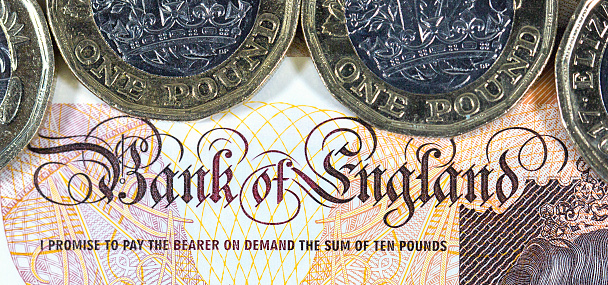As widely anticipated, BOE voted unanimously to keep all monetary policies unchanged in November. The Bank rate stays unchanged at 0.75%. Meanwhile, purchases of gilts and corporate bonds remain at 435B pound and 10B pound, respectively. The central bank sent a more hawkish-than-expected message to the market. While reiterating “gradual and limited” monetary stance, BOE noted more rate hikes might be needed as there could be overheating in the economy in 2H19. Meanwhile, its desire to hike interest rates could materialise amidst smooth Brexit. Sterling extends today’s rally. It has been boosted by the Brexit Secretary Dominic Raab’s suggestion that UK might reach a Withdrawal Agreement with the EU by November 21. This is yet to be confirmed by EU representatives.
Under the assumptions that there would be three more rate hikes by late 2021, as well as a smooth Brexit transition, the members forecast GDP growth would reach +1.3% this year, down from +1.4% projected in August. GDP growth would then improve to +1.7% y/y in 2019, down from August’s estimate in +1.8%. The central bank added that the outlook would “depend significantly on the nature of EU withdrawal, in particular the form of new trading arrangements, the smoothness of the transition to them and the responses of households, businesses and financial markets”.
Despite the assumption of a smooth Brexit, BOE noted in the quarterly inflation report that the impact of Brexit “cannot be determined in advance, under all circumstances, the MPC will respond to any material change in the outlook”. As noted in the report, “the monetary policy response to Brexit, whatever form takes, will not be automatic and could be in either direction”. Concerning post-Brexit monetary policy, Carney indicated interest rates can go in both directions. He noted that no-deal Brexit would also trigger rate hike, as weak sterling and tariff could send import prices much higher.
UK’s economic developments and monetary policy outlook have almost been directed by Brexit negotiations. The progress of Brexit negotiations has been slow. It remains uncertain whether a special summit, let alone a deal, would be held this month. Even if the challenges from EU are overcome and a deal it struck by December, the UK parliament would be voting on it in January 2019, before the Brexit day on March 29, 2019. While our base case remains a last-minute deal, we expect the limited time frame would lead BOE to stand on the sideline at least until 2Q19.


 Signal2forex.com - Best Forex robots and signals
Signal2forex.com - Best Forex robots and signals




